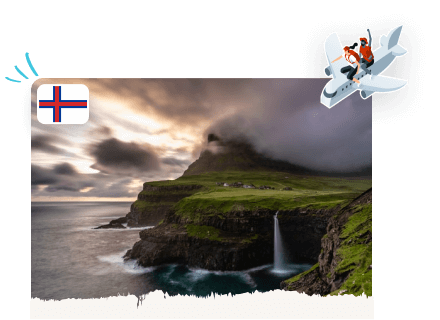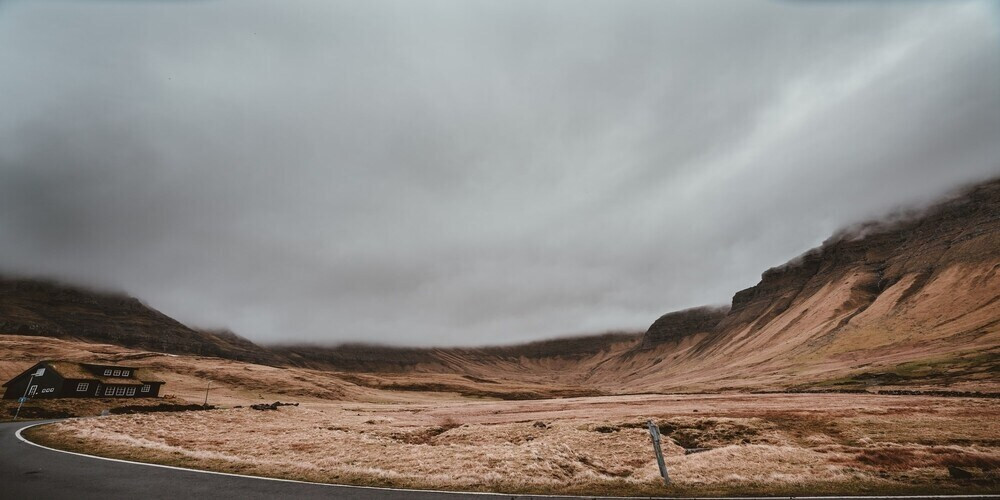
There are 49 island countries in the world. Today we will talk about Faroe Islands, one of them. If you are planning to travel to Faroe Islands, you are in the right place.
1. Where are the Faroe Islands?
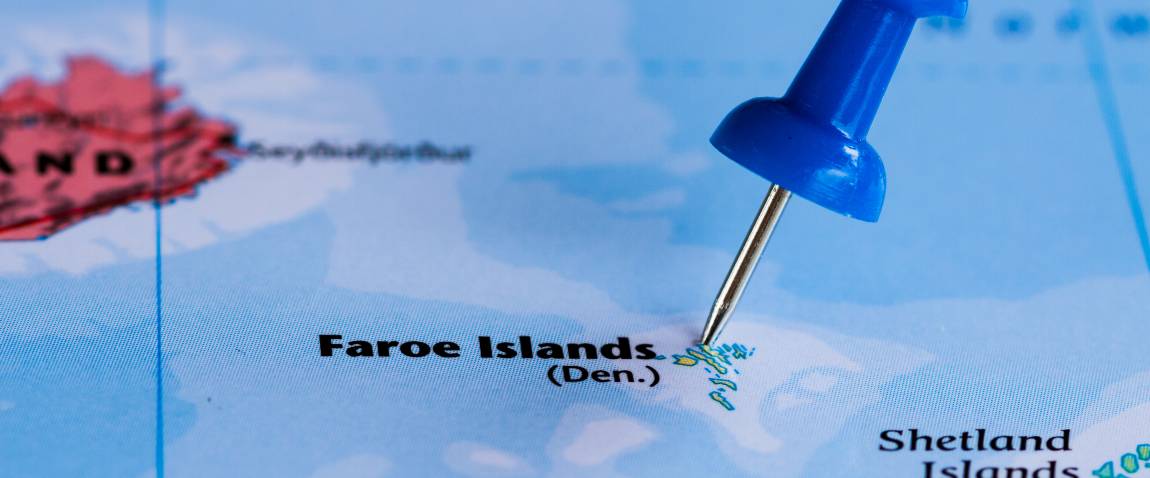
If you are hearing the name of this country for the first time, let’s start with this question: Where are the Faroe Islands? The Faroe Islands are made up of 18 islands. The country is 655 km away from Europe and located between Iceland and Scotland. Although the island handles its own internal affairs, foreign affairs is managed by Denmark. The capital of the Faroe Islands is Torshavn.
The Faroe Islands is named after the old Norwegian word “faer”. The word means sheep. That is why the country is also called “the land of sheep”. The official languages of the country are Faroese and Danish. Nevertheless, Faroese people, especially the younger generation, can speak English.
2. Friendly Faroese people
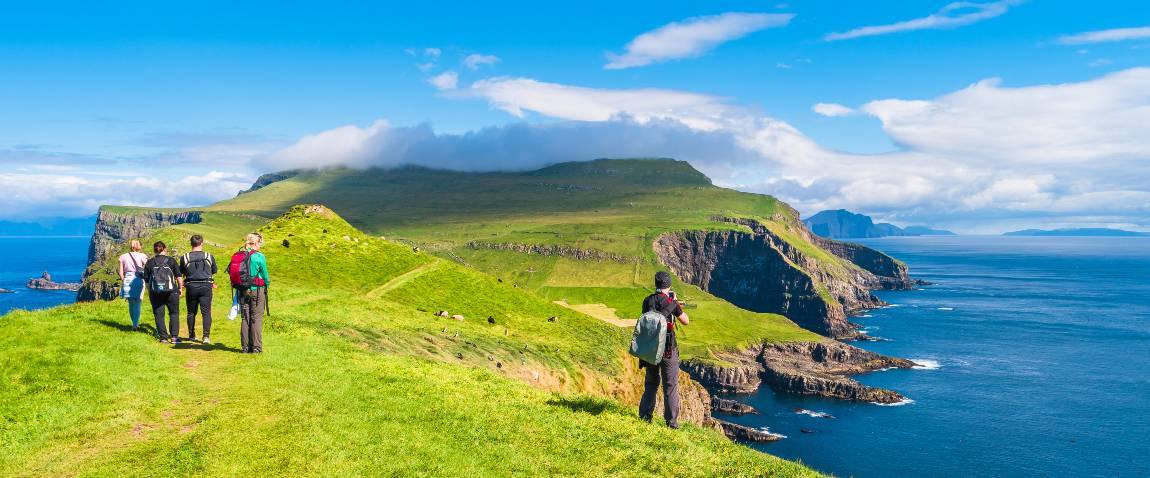
According to 2018 figures, the population of the Faroe Islands is 48,497. Faroe Islands population is Norwegian Vikings, who began to settle here 1500 years ago. Life expectancy in 2017 was 82.40 years. The most populated city is the capital Torshavn with more than 13000 people. It is approximately 38 per cent of the overall Faroe Islands population. The second most populous city is Klausvik.
3. Visa for Faroe Islands

One of the interesting facts about Faroe Islands is that it is not a member of the European Union. Therefore, it is not enough to have a Schengen visa to travel here. If you are planning to go to the Faroe Islands, you can get a visa to this country by approaching the representatives of the Faroe Islands in your country. If you do not know whether there is a representative of the Faroe Islands in your country or not, you can look at this list. If your country is not on the list, you can obtain a visa from the Danish embassy or consulate in your country.
4. How to travel to Faroe Islands?
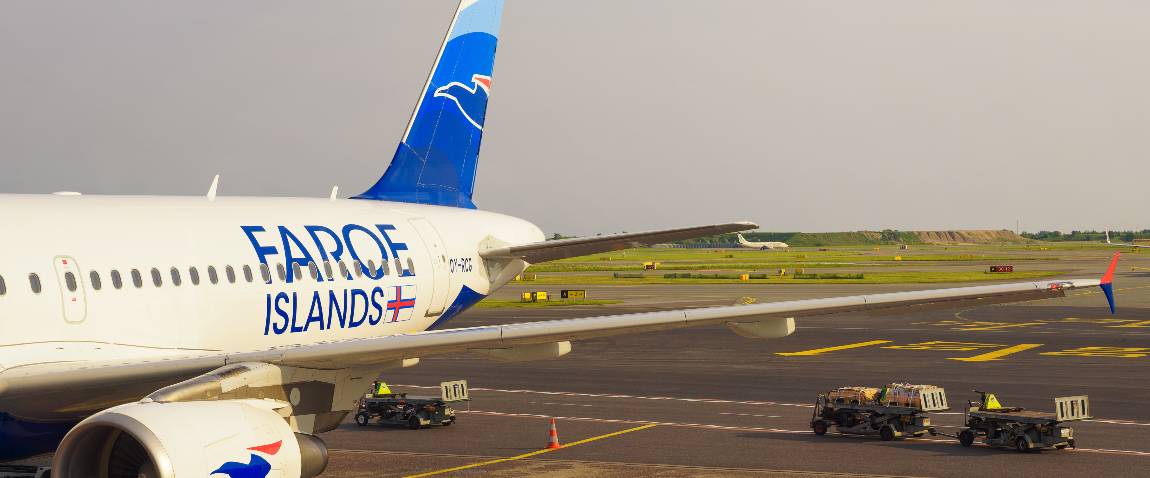
It is always a matter of curiosity how to travel to Faroe Islands. To be honest, most of the airlines do not have flights to that destination. But traveling to Faroe Islands is not as difficult as you think. Only Atlantic and Scandinavian airlines have flights to this country. Flights are operated from Denmark, France, Iceland, Scotland and Norway. There is only one international airport in the Faroe Islands. The name of the airport is Vaga Floghavn (Vagar airport). Faroe Islands airport was built by the British Army in the 2nd World War, for the military purposes. Capital Torshavn is only 45 minutes away from Faroe Islands airport.
In the country, different types of vehicles are used. The speed limit varies between 50-80 km/h. The best way to explore the island is a car or motorcycle. The roads are very neatly built, so it is very convenient for such trips. It should be noted that public transport is free of charge in Torshavn, capital of Faroe Islands. Since the Faroe Islands is a group of islands, you may ask, how do I travel from one island to another? There are three answers to this question.
- Tunnels and bridges. There are 19 tunnels in the country. Two of them are under the sea. Besides tunnels, there are three bridges that help to travel from one island to another.
- Ferries. There are overall seven ferry lines in the country.
- At Vagar Airport or bus stations, you may be offered travel cards for buses and ferries. The price of a 1-week travel card is 111 USD for adults and 56 USD for children. These cards are valid on all islands except Mykines Island.
- Helicopters. All three have special places, but I think it is different to see these beautiful islands from the air. Therefore, I recommend that you travel to one of the islands by helicopter. If traveling by helicopter sounds interesting to you, do not forget to book in advance.
5. The unpredictable Faroe Islands weather
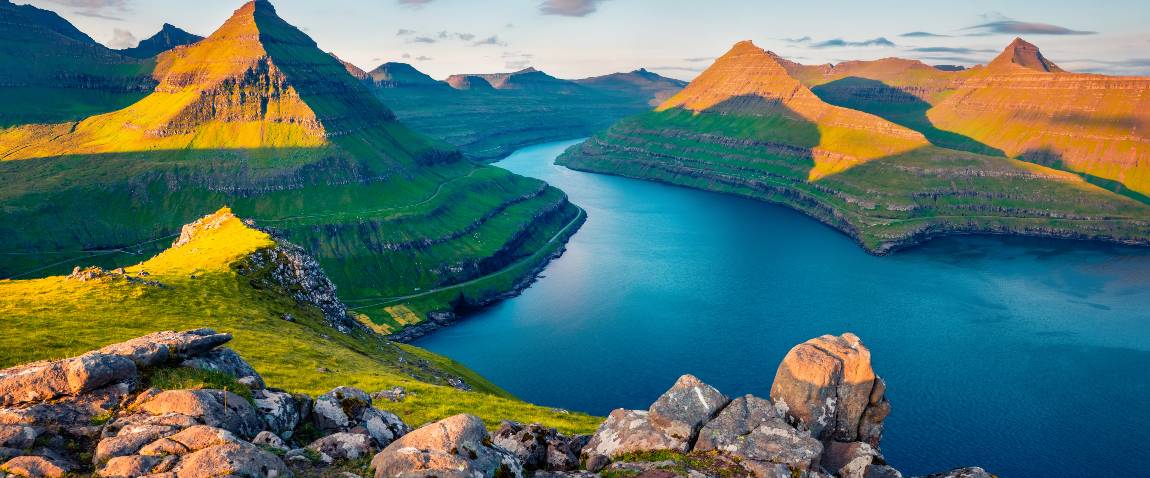
Speaking of the Faroe Islands, it is necessary to mention the Faroe islands weather. The weather of the Faroe Islands is very unpredictable. So, when you look out the window and see the sun shining, do not rush to make a decision, or you may regret it. Due to its location in the Arctic Circle, it has a cold climate. In summer, the average temperature is 9 degrees. In winter, the average temperature drops to minus 8 degrees. That’s why you should always have warm clothes in your travel bag, even in summer.
6. The food culture of the Faroe Islands
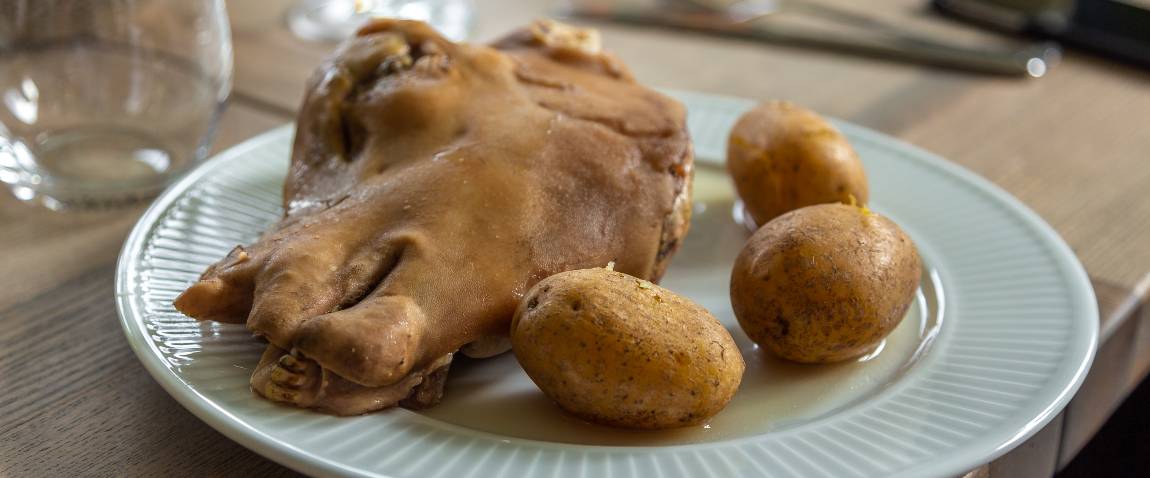
As the name of the Faroe Islands suggests, it is a “sheep island”, and its main dish is mutton. Dishes made from various ocean fish also have a special place in their kitchens. The reason for the predominance of meat in their kitchens is the cold climate and the lack of favorable conditions for growing fruits and vegetables. Therefore, they import fruits and vegetables from neighboring countries.
This kind of cuisine can disappoint vegetarians and vegans. But there are also options for you. You can find dishes that suit you in many cafes and restaurants, especially in the Faroe Islands capital Torshavn. But try to take your food with you when you travel to other smaller cities.
7. How many days are enough?
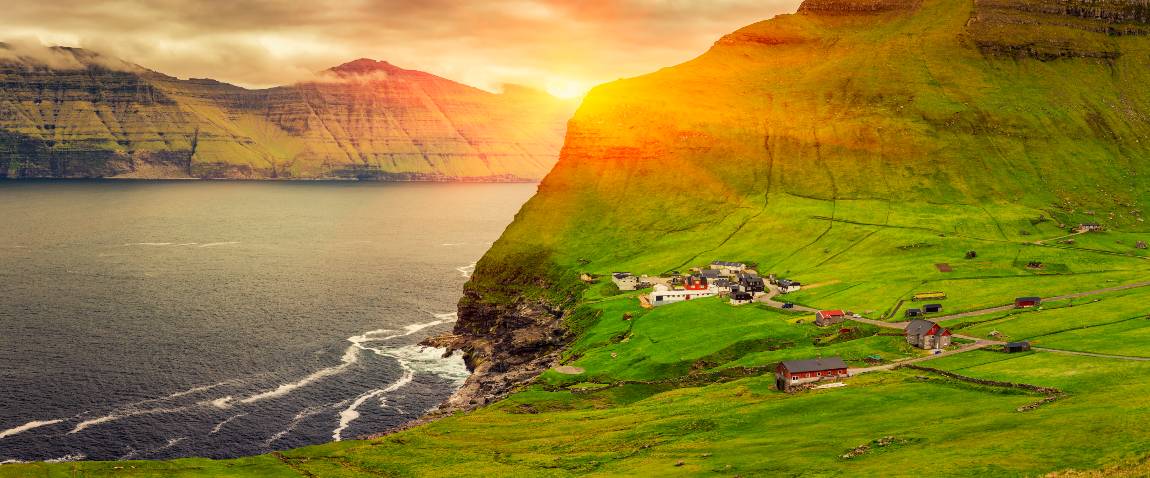
If you have planned your trip for 3-4 days, you will have to think about it again. Do not be fooled by the small size of the island. Because there is a lot to explore, and as I mentioned above, it is impossible to predict the weather in the Faroe Islands. Maybe the weather during your trip is such that you can’t go out all day. So, try to keep your journey as long as possible, at least one week.
8. Where to stay in Faroe Islands?
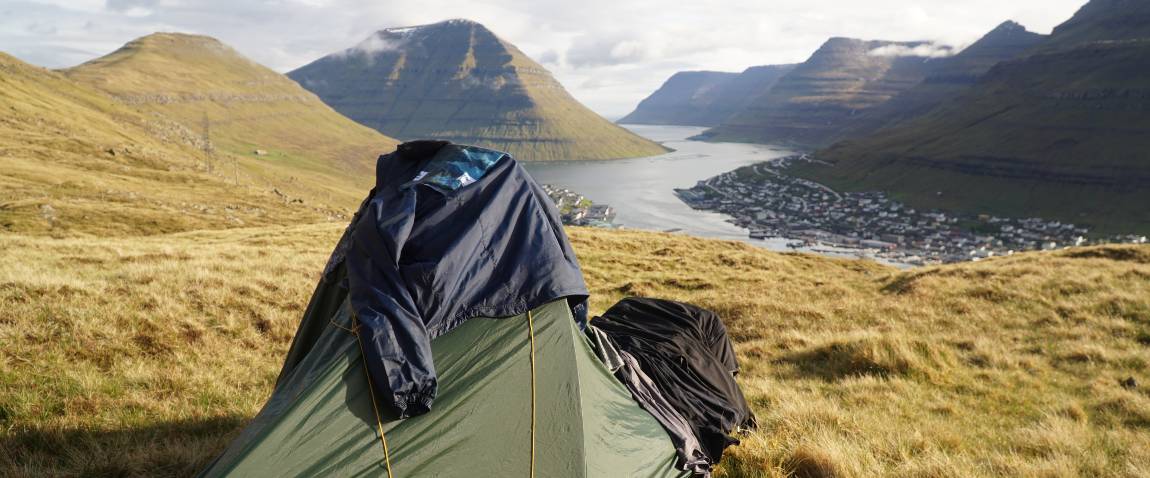
Are you wondering where to stay in the Faroe Islands? Well, First of all, it should be noted that traveling to the Faroe Islands is expensive. Here, your main expenses will go first to the transport, and then to where you will stay. So, let’s start with budget-friendly camp areas. There are special places for camping on every island in the country. These are the places that tourists visit the most. Therefore, especially if you plan to come here in summer, it is better to book a place for winter. Of course, the camp has its own rules. That’s why it’s important to read a set of rules. A night's stay at the campground costs about 25 USD.
The second place to stay is hostels. There are 3 hostels in the Faroe Islands. Two of them are in the capital Torshavn, and the third is on the island of Vagar. Although the price is more expensive than in other countries, it is still cheaper than other options (about 30 USD).
Hotels can be mentioned as a third option to stay. There is a total of 13 hotels in the Faroe Islands. Most of these hotels are located in the capital. There are also hotels in Eysturoy, Vagar, Nordoyggjar, and Suguroy. Hotels here for 2 adults start at 110 USD per night.
The fourth option is to rent an entire house. This can be affordable when traveling with a larger company. Prices for such summer houses start at 120 USD per night.
9. What are Faroe Islands famous for?
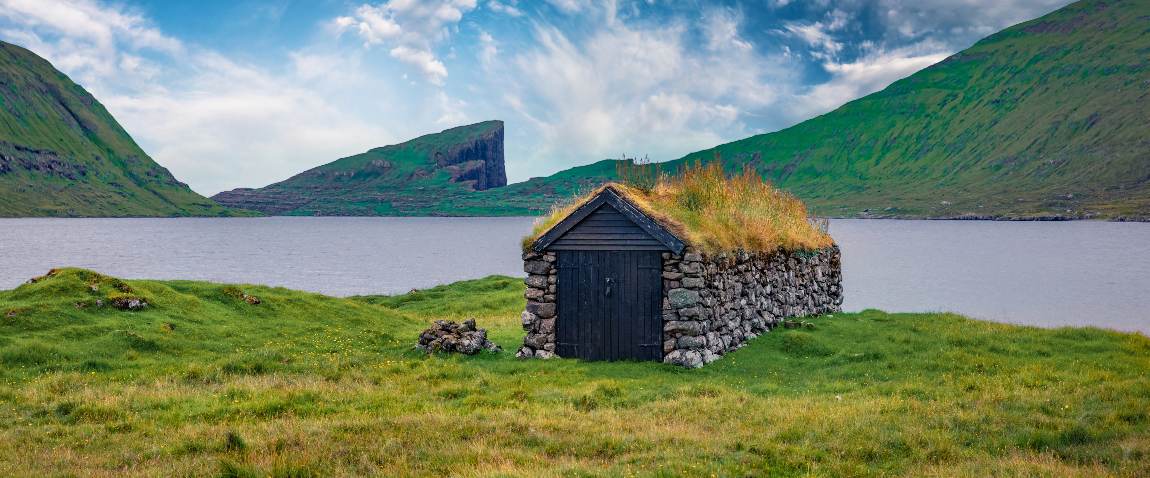
The Faroe Islands are a place where you will be amazed wherever you set foot. Therefore, it is very difficult to separate these places from each other. Of these, Lake Sorvagsvatn is one of the least likely to be seen in other parts of the world. The lake has an amazing view at an altitude of 450 meters above the Atlantic Ocean.
Another rare sight is the Vestmanna bird cliffs. In recent years, more than 300 species of birds have been discovered here. Birds can be found on the islands of Mykines, Nolsoy, and Skuvoy. These islands have favourable conditions for bird-watching. You can clearly see the birds with both the naked eye and binoculars. Of the hundreds of bird species, puffins and oystercatcher are the most popular.
Misty and foggy village of Gasadalur is another famous place in Faroe Islands. The village is located in the west of the country, in Vagar island. In 2012, the population of the village was 18. Mulafossur Waterfall, one of the most famous waterfalls in Faroe Islands, pours down from the steep slopes of this magnificent village.
10. The most famous festivals
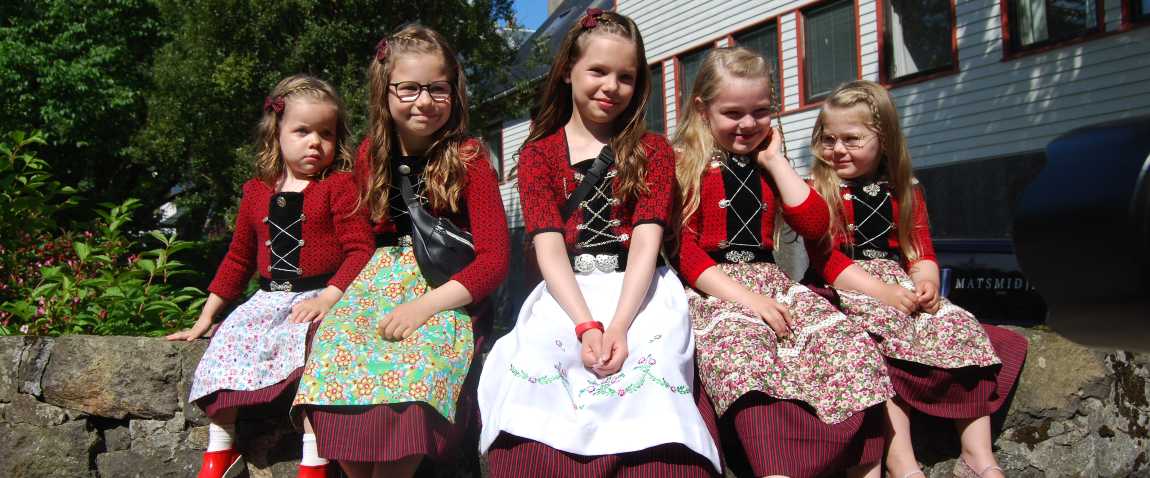
The best time to travel to Faroe Islands is May-August. Therefore, it seems that you are also planning your trip at this time. Your travel plan probably includes hiking, bird watching, and taking photos of sightseeing places. But what if I also say that there are festivals in these months?
Let’s start with the most famous of these festivals, the Seafood Festival. The festival is held every year in May. It should be noted that 90% of the economy of the Faroe Islands depends on fish exports. Therefore, it is no coincidence that the most popular festival is associated with fish. Here you can find lots of fish dishes prepared with different recipes.
The most popular music festivals held in July are G! and Ólavsoka festivals. Along with local musicians, international musicians are also performed at the G! Festival. Bringing different types of music together makes this festival one of the most important music festivals on the island. Olavsoka festival features ancient Faroese songs, dances, and art. By participating in these festivals, you can learn more about Faroe Islands.


